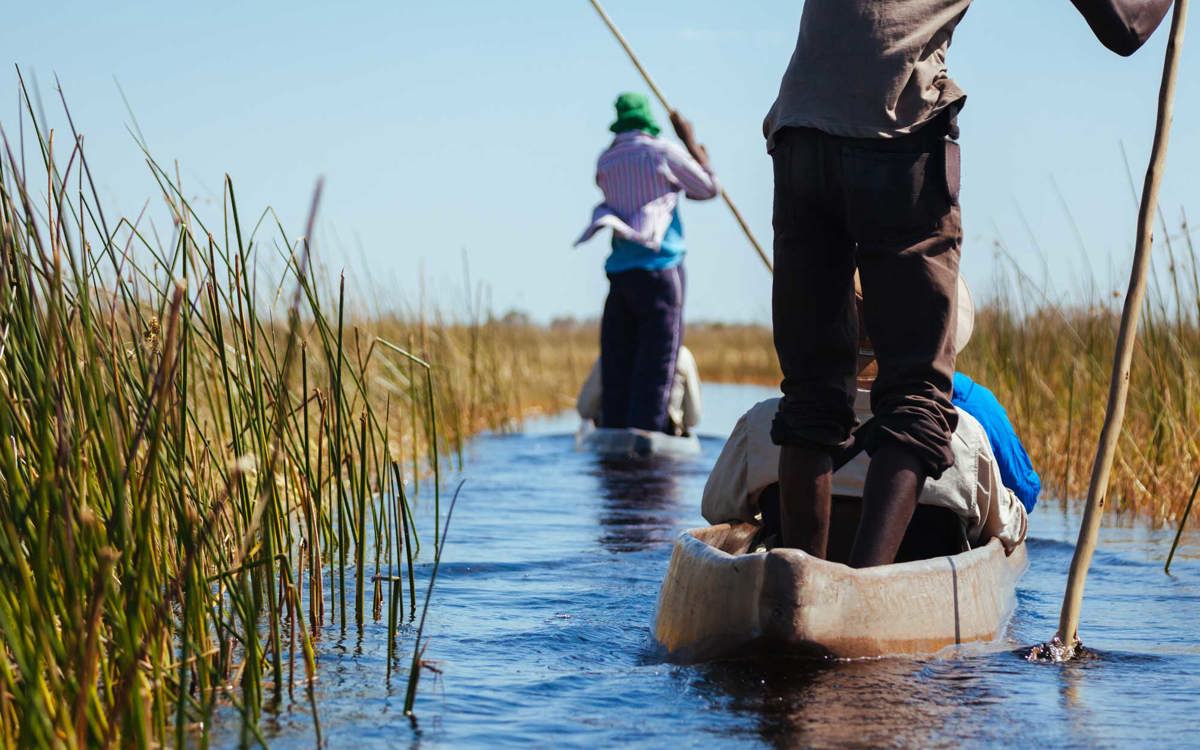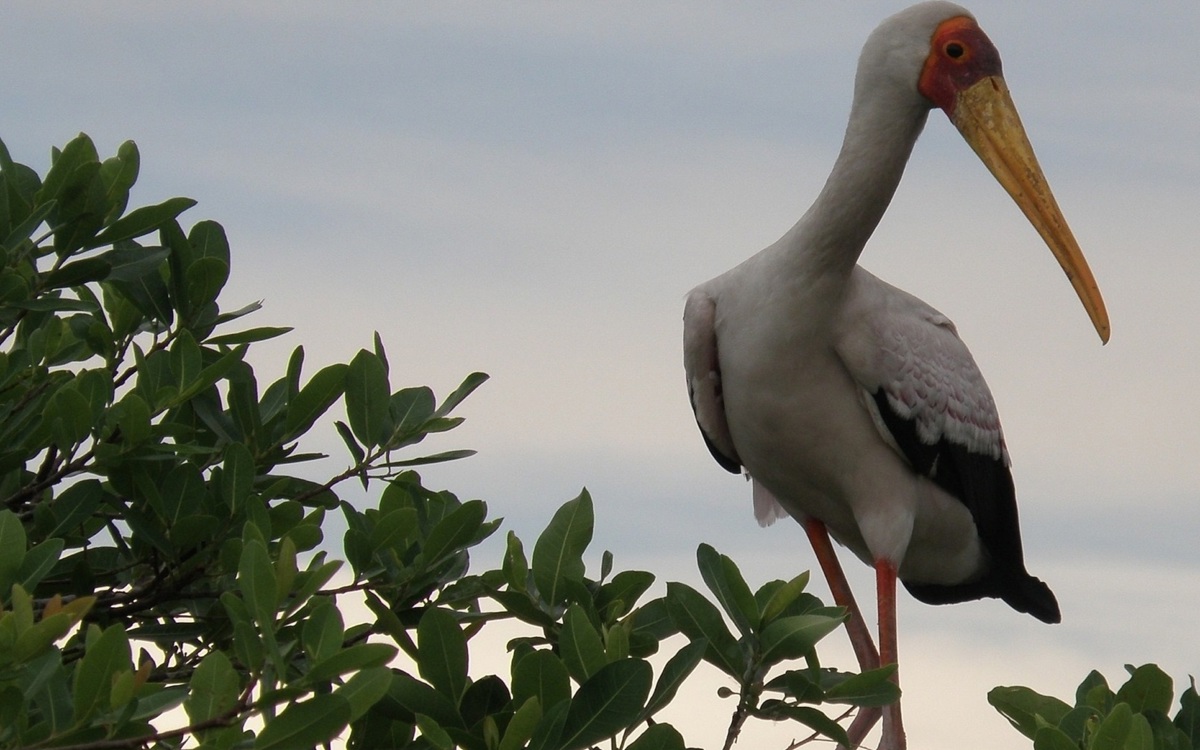Why indigenous languages matter for inclusive societies. By Herman Batibo, University of Botswana

University research shows that if we don’t recognise and maintain our minority languages, we risk excluding entire communities.
By Herman Batibo, University of Botswana
In the southern African nation of Botswana, from the swampy Okavango region to the arid Kalahari desert, up to 30 languages are spoken. Yet only a handful have official status or public function. Of the others, some have kept their vitality – mostly those with a larger demographic or that are spoken in bordering nations. But at least 17 languages are fast losing ground.
As these minority languages become increasingly marginalised – in terms of schooling, legal systems, and social services – so do their speakers. Although the government is working hard to level the ground by assisting disadvantaged communities, many minority language speakers remain excluded. Protecting these languages, then, is not simply a matter of preserving the country’s linguistic and cultural wealth, it is also vital to ensuring equal access and opportunities for all Botswana’s people.
A journey into the languages of Botswana today begins with Setswana – its national language and that of the Tswana people of southern Africa. 13 further Bantu languages are spoken across the country. These have the same origins as Setswana, but are not mutually intelligible. The only languages of Indo-European origin are English and Afrikaans: English is spoken mainly as a second language, while Afrikaans is mostly spoken in neighbouring South Africa, where it originated some 500 years ago as a Dutch creole.
But Botswana is also home to the highest number of rare click-sound Khoisan languages. Many of these share no common ancestry with other African language families and are unique in their unusual sounds, unfamiliar word forms, and complex sentence structures. They are made distinct by their use of clicks – consonant sounds made by the sucking of air in the mouth. (The click-sound most familiar to English speakers would be the tsk or tut-tut sound, often uttered in disapproval by clicking your tongue against the top of your mouth – why not try it now and see how it sounds!) Khoisan languages include !Xóõ, =Hua, Ju/’hoan, =Kx’au//ein, /Gwi, and //Gana – the marks and symbols (known as diacritics) represent the click sounds, just as accents and other symbols are used to guide pronunciation in other languages.
Botswana’s ‘unofficial’ languages are often confined to village and family interaction and localised cultural activities. Some, particularly those of Khoisan origin, are now so depleted that fewer than 500 speakers remain, and these are mostly of older generations. The Khoisan languages are particularly vulnerable due to the small, scattered communities in which they are spoken. One, known as N/u, is today only spoken by eight elderly women, all living in distant locations.
‘An empty hand is not licked'
The vulnerability of Botswana’s minority languages can be explained by a number of different factors, from smaller speaker demographics (often fewer than 5,000 speakers) to the complex socioeconomic and practical disadvantages of being linguistically and culturally different from the mainstream. Other factors include education (usually conducted in Setswana and English), rapid urbanisation, and a sense of nationalism that favours a unified ‘one-nation, one-language’ approach.
As minority languages become increasingly swallowed up by more dominant ones, we begin to see signs that language shift is underway. The first such sign is that minority language speakers themselves begin to develop negative attitudes towards their own mother tongues, starting to see them as worthless. As a result, they cease to transmit their languages and culture to their children, encouraging them instead to speak Setswana and English. These, they feel, will bring them bread and butter and a brighter future. One elderly Khoisan man referred me to a proverb: ‘an empty hand is not licked’. In other words, a language must have something to offer, just as there must be something tasty in a hand so as to lick it.
Often, when I ask my students: Who speaks a Khoisan language?, no one raises their hand. Later, students will come to my office to tell me that they do speak a Khoisan language but didn’t want to say so in front of their classmates. This is perhaps one of the most disturbing and tragic consequences of belonging to a minority language and culture: a sense of self-denial; a negation of one’s language and cultural roots, and loss of one’s identity. Many speakers of localised minority languages tend to hide their ethnic identity. They may use Setswanan or English names in their public lives, with their ‘local’ names only used by close family members.
As languages are no longer passed on to younger generations, the number of speakers dwindles rapidly as older generations pass away. Indeed, many of Botswana’s minority languages are only heard when older people are involved in the conversation. Proficiency in the language diminishes too, including a loss of cultural vocabulary – words for hunting, herding, beekeeping; for fauna, flora, landscape; and for customs, traditions, and practices. Similarly, stylistic expressions – metaphors, idioms and proverbs – may be lost, sometimes forever.

Marginalised and missing out
When I came to the University of Botswana from Tanzania, some 25 years ago, I was amazed and even intrigued by Botswana’s many small languages, often marginalised by their exclusion from public use. I was keen to research them, and to understand how the speakers of these languages were able to participate in society and access education.
This research undertaking was important because it sought to ascertain whether the national language, Setswana, was truly understood and used all over the country. Were most of Botswana’s citizens using Setswana proficiently, as was officially believed? Or were some citizens disadvantaged or excluded, unable to access education, resources and opportunities because of the language they spoke?
My research confirmed that many minority languages were critically endangered – not only in Botswana but right across the African continent. My findings also showed that important information from government was not reaching many of the country’s minority language speakers – particularly in the west of the country, where the Bantu language of Shekgalagari is the main lingua franca.
Some of this information was of critical, even life-saving, importance – the dangers of HIV/AIDS, the spread of malaria, or foot and mouth disease and its threat to livestock. Sometimes, I found that citizens were missing out on economic benefits or government assistance.
Another worrying consequence is children not doing well at school. A number of studies carried out in non-Setswana speaking parts of the country found that school performance at the end of primary education was much lower than in areas where the more dominant Setswana is spoken. Although there may be other factors in play, the question of language is a critical one.
These sorts of research findings remind us that universities are an important source of objective and authentic information. This is often in contrast to official statements and decrees, which may be based on assumptions and generalisations.
My research found that important information from government was not reaching many of Botswana's minority language speakers. Some of this information was of critical, even life-saving, importance.

Recognition and inclusion
If the current state of affairs continues, many of Botswana’s minority languages will be extinct within the next two or three generations. The primary way to salvage the situation, or at least slow down the process, would be to review the country’s current national language policy, which excludes minority languages in its national affairs. A more inclusive national language policy (such as the approach taken by Namibia, where 26 indigenous languages have been declared national languages and can be used as the medium of instruction in the early primary years of school) or a hierarchical one (allocating public function at different levels, such as in Ethiopia) need to be considered as a matter of urgency.
Once a minority language is accorded a certain public role or function, however minimal, its speakers not only value their languages, but also consider themselves to be a recognised community. This could include the use of minority languages in kindergarten, primary education, and local administration and media. Also important is the creation of dictionaries, grammar guides, and orthographies (sets of conventions for writing a language). Enabling languages to be written allows for greater literacy among speakers and use in cultural industries and tourism. Moreover it generates in its speakers a greater sense of self-esteem and pride in their culture and ethnic identity.
Our linguistic and cultural diversity is an incredibly valuable resource. Without it, we lose not only ways of speaking, but entire systems of indigenous knowledge. We risk the exclusion of entire communities, pushed to the margins of our society.
While Botswana has managed to consolidate its unity and nationhood through the European model of ‘one-nation, one-language’, it has not yet resolved the question of how to protect its linguistic wealth, and promote equal access and opportunities for all. Here, universities have an important part to play – from highlighting the true plight of minority language speakers to shaping more inclusive policies in their nations and communities. Together, we need to act fast if we are to salvage and safeguard our diverse voices for future generations.
Herman M Batibo is Professor of African Languages and Linguistics at the University of Botswana, and author of Language Decline and Death in Africa: Causes, Consequences and Challenges.
Image (top): Botswana’s Okanvango Delta by M Mendelson at Shutterstock
